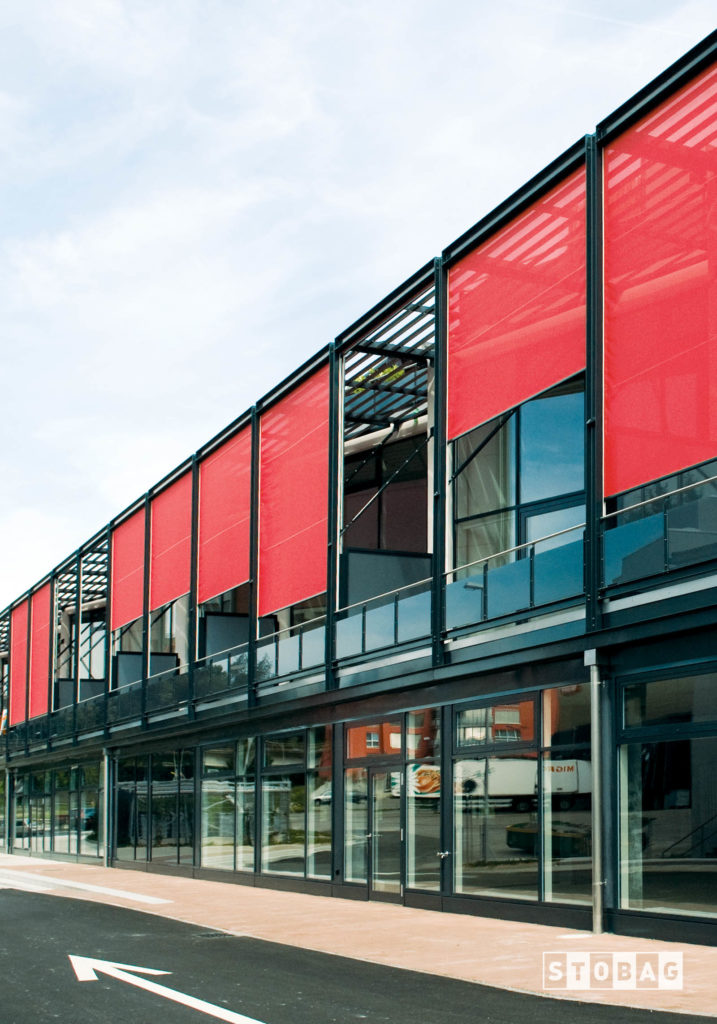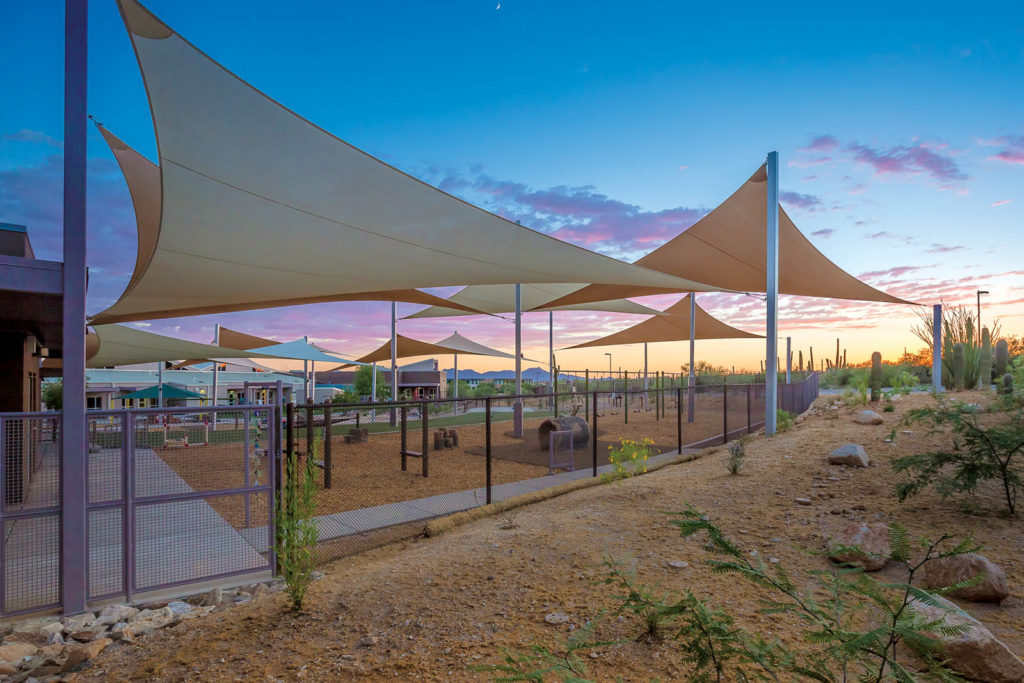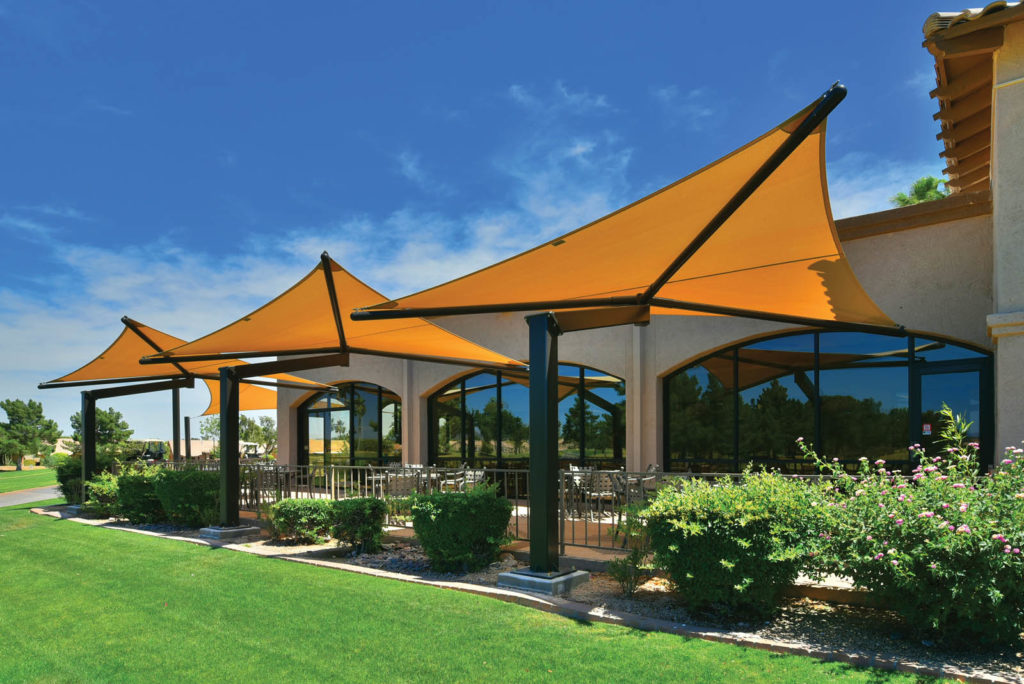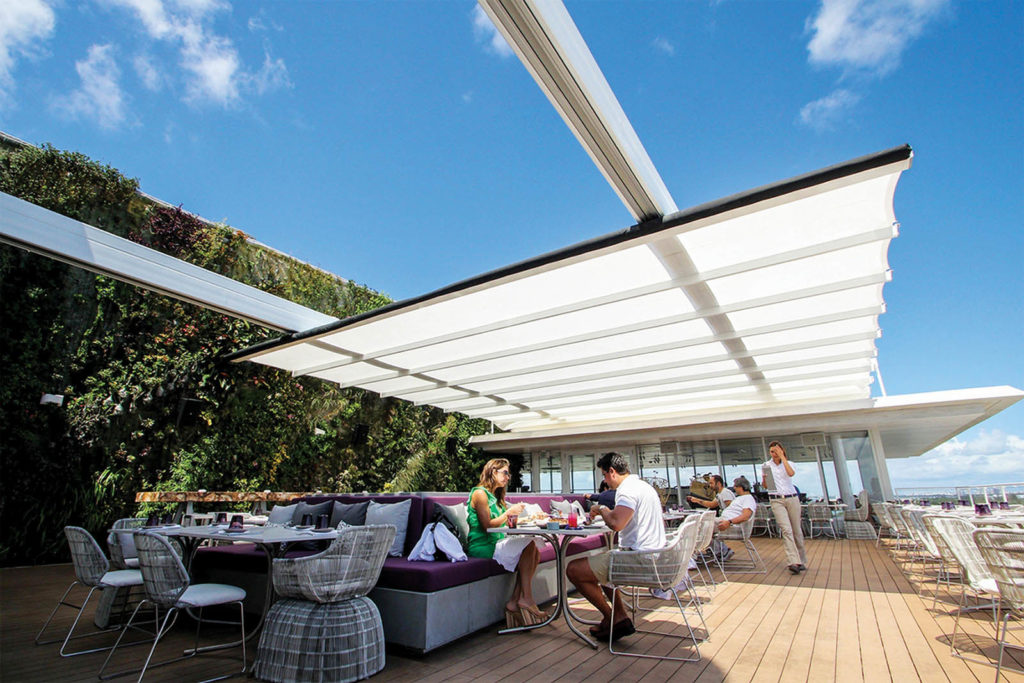Attracting customers in the market for shade products is one thing; retaining them for future business is another. Managing both objectives requires establishing connections that are meaningful and lasting.
by Pamela Mills-Senn
A quick Google search on “connecting with customers” reveals all sorts of advice, usually in the form of the “seven best ways,” or the “top 10 ways,” or the “15 sure-fire ways to connect.” Regardless of the number involved, what these lists demonstrate is that making a connection with customers is clearly essential for business viability. At the same time, it remains an ongoing challenge for many companies.
It seems something of a contradiction; after all, we’re constantly hearing how connected everyone is thanks to social media and all of our digital devices. And while Facebook, Twitter, Instagram and other sites are useful tools for relationship building, the reality is that connecting with customers also requires a level of personal, non-digital interaction, particularly if a company is trying to sell itself on more than just price.

Where to begin?
In some cases, it starts by narrowing a company’s focus and reach. Consider abc Sun Control Systems LLC, a North Hollywood, Calif., wholesale manufacturer of retractable shading systems, founded in 1979. As Don Smallwood, president, explains, company products are distributed throughout the 12 western states by “quality dealers” (awning stores), and are directed primarily to the commercial and residential markets, with a little bit of marine thrown in.
Currently, the company has 150 of these dealers, says Smallwood. However, when he joined the company in 2003, there were around 25 of them. At the time, the company was trying to sell to non-dealer customers and dealers alike, which wasn’t working.
“Because of this arrangement, the company had very few dealers in the L.A. area,” Smallwood recalls. “One way we became more attractive to awning companies was by not interacting directly with the public, but by selling only to dealers, which made them more willing to work with us because we’re not competing with them.”

When non-dealer customers find abc’s website through an online search and make inquiries, they’re referred to the appropriate dealer. Awning stores also find the company in this way, although Smallwood says they’re not actively pursuing new dealers at this time. In fact, while the company does attempt some search engine optimization (SEO), the website represents the extent of its marketing efforts. The company has no salespeople and does no advertising.
“We do our marketing by providing our dealers with the best services and products,” he explains. “We focus on providing responsive and concerned customer service, with an emphasis on delivering what we say we will and in the time we’ve committed to.”
Going old-school
According to Smallwood, abc Sun Control Systems also makes doing business with the company as simple as possible. For example, rather than forcing people to navigate a voice mail tree, the company has an actual person picking up the phone. If Smallwood notices a drop-off in orders from a particular dealer, he will call that customer, “principal to principal,” to see what’s going on. It’s an old-school approach, and it’s working for them.
It’s one approach that, in part, Liberty Home Products Inc. utilizes as well. Headquartered in Denver, Colo., with additional locations in Colorado Springs and Highlands Ranch, the company provides custom shade products like awnings, shade sails, solar shades and patio sun and wind screens, as well as steel products (railings, security doors and window well covers).

Founded in 1979, the company has long served the residential market. However, a little over a year ago, Liberty established a commercial division, primarily targeting locally owned businesses, says Liam Madden, director of marketing operations.
“We only produce our solar shades and awnings and steel railings for our commercial customers, leaving the rest of our product lines for residential,” Madden explains. “We do offer custom screenprinting for commercial clients because it is truly another way to brand a company or business.
“In a lot of cases, our commercial clients are just our residential clients fwho happen to own a business,” he adds. “As our commercial client base grows, so does our scope of potential clients, which is so exciting.”
Liberty Home Products participates in a local leads group that allows them to communicate with other small area businesses. According to Madden, while the company has not yet allocated a significant portion of its budget to commercial marketing, the strategies they use to connect to their residential customers will likely generate commercial work, given the overlap between the two. These strategies include involvement in area community events like home and garden shows, 5K-type races, bridal shows and national nights out, taking advantage of pretty much any opportunity to interact with community members and previous customers.

“We draw attention by offering premium gift cards and some branded carnival games like Plinko,” Madden says. “We try to do as many events as we can, although we do the most events in the spring and summer and try to do as many as possible in the winter and fall.”
Following up with a phone call after a project has been completed, or reaching out to see if customers have any upcoming needs, are other personal ways of connecting and are among some of the processes Conrad Masterson, president of SHADE Industries, is exploring.
Located in Phoenix, Ariz., the company designs, fabricates and installs custom shade sails and other tensioned fabric structures, including its gorillaBrella umbrellas, focusing primarily on the areas where people gather outdoors, such as parks, schools, work sites, offices, playgrounds, seating and presentation areas, amphitheaters and waiting areas. Although most customers are in Arizona, the company does design, ship and install several projects annually in different parts of the country.

“Over the years, we’ve focused primarily on repeat business and doing a good job for our customers with good growth results,” Masterson says. “However, we recently hired a business development manager whose primary responsibility is introducing our company to potential customers. Rather than selling our products and services, he’s trying to find the future business and sell us to some potential future customers.”
This involves meeting with current customers who have a good relationship with SHADE to find out what they like about the company and where it can make improvements, says Masterson. The plan is to use that information to identify similar customers and industries, sharing that positive feedback in an effort to generate new business.
Deploying digital
Masterson says his company also relies on word-of-mouth to attract potential clients. Given the “public spaces” nature of the projects, this has been an effective way to connect. Shade Industries utilizes digital tools such as its website, which is undergoing a revamp.
“This used to drive a of lot business to us,” he says. “However, it has grown very old and isn’t nearly as interesting as most of our competitors’ sites, so we’re working on that now. We’re also starting to utilize Facebook and LinkedIn for some posts and updates, as well as CRM for drip email campaigns.”
Along with monthly email promotions, sent to a list comprised of previous customers and people encountered at community events who opt in, Liberty Home operates on Facebook, Twitter, Instagram, YouTube and LinkedIn, each of which serves a different purpose, says Madden. The company posts about products and projects at least weekly, and provides employee and company updates to keep past, current and future customers informed.

Peter Fervoy, president of Uni-Systems LLC, says marketing efforts concentrate on the website and “other forms of proactive digital marketing.” Headquartered in Minneapolis, Minn., the company is the inventor, designer and manufacturer of the patented, stadium-grade En-Fold retractable awning system, primarily serving the hospitality industry.
“I have found that involvement in successful projects and building marketplace campaigns based on those successes is critical,” Fervoy says. “So many of our leads come to us and say ‘I saw your XYZ project and I want one just like it.’ So, use all the digital tools available to promote your business—past projects and products, websites, Facebook, LinkedIn, Instagram, YouTube, blogs, e-newsletters, etc.”
Uni-Systems also offers incentives in the form of “value-added reseller” and “finder” opportunities for companies interesting in selling En-Fold. As Fervoy explains, a value-added reseller is one who purchases the product from the company, resells it (“With an appropriate mark-up,” he adds) and handles the installation. A finder generates the lead, helps to close the deal (although Uni-Systems would sell direct to the customer), and earns a finder’s fee.
Looking ahead
Uni-Systems’ hospitality customers install En-Fold for shade and rain protection, according to Fervoy, helping them to either recover revenue lost because of a lack of agreeable outdoor space or to capture new revenue, turning “underutilized outdoor space” into a money-maker. The shades also enable facilities that have hit their built-space limits to gain additional room. Fervoy anticipates continued interest in architectural shade products, driven by the growing popularity of alfresco dining and outdoor events.

Gianluca Taramelli, director of sales and marketing for KE Durasol Awnings Inc., shares the same perspective. Located in Chester, N.Y., the company manufactures outdoor shade products with Italian design, selling to select dealers throughout the U.S. The shades are directed to both residential and commercial markets. Through its sales department, KE actively hunts for new dealers, although Taramelli adds that many prospects call them. The company also relies on a team to handle communication activities, such as its social media outreach, website content, newsletter distribution and trade show participation.
“Our units allow residential customers and commercial businesses to enjoy their outdoor space by providing relief from heat and protection from UV rays,” says Taramelli. “We provide the alternative to hiding indoors. It’s been proven that the temperature under an awning is 10 to 15 degrees cooler.”
Restaurants like The Brooklyn Crab in Red Hook, N.Y.; Del Frisco’s in New York City; Spot on the Dock in Burlington, Vt.; and The Frisco in Webster Groves, Mo., have all been able to significantly increase seating thanks to the company’s products, he says.
As for where Taramelli sees demand for architectural shade heading, he says the market will seek out more efficient, durable, reliable and smart products.
“Also, the next future will see integrated polymer fiber sensors perceiving the environmental conditions,” he predicts. “It is not yet mature, but there are already many successful applications in other industries. Energy-savings performance could be the key for the next level in a world that is adapting to climate change.”
Sidebar: Fabrics that connect
Effective outreach to customers is essential for connecting, and providing in-demand products is equally important. The list of fabric qualities desired by end users includes: high UV protection; resistance to fire, water and mildew; durability and toughness; and easy cleaning and stain resistance—everything one would expect an outdoor shade or structure to offer. In fact, these qualities are among the reasons behind the popularity of AwnTex® fabrics, says Liam Madden, director of marketing operations for Liberty Home Products Inc. in Denver, Colo.
Fabric look and feel is also critical. According to Madden, over the years he’s noticed companies producing more brightly colored and textured fabrics that impart a modern feel. Peter Fervoy, president of Minneapolis, Minn.-based Uni-Systems LLC, says his customers are drawn to highly translucent fabrics.
“These can provide a beautiful soft light during the day and can be enhanced with lighting effects at night,” he explains. “Customers also focus on the lifespan of the fabric and ease of maintenance. For these reasons, ePTFE fabric is a popular choice.”
Conrad Masterson, president of SHADE Industries in Phoenix, Ariz., is seeing a lot of interest from customers in GALE Pacific’s new dual shades—a two-color cloth that SHADE is planning to use on some upcoming projects.
Don Smallwood, president of abc Sun Control Systems LLC, North Hollywood, Calif., says screens and zipper systems seem to be taking a greater market share. Fabrics utilized for screens include those from Mermet, Twitchell, Phifer and Serge Ferrari. Sunbrella®, Sattler, Para and Sailrite are among the popular awning fabric choices he sees from customers.
Pamela Mills-Senn is a freelance writer based in Long Beach, Calif.
 TEXTILES.ORG
TEXTILES.ORG


